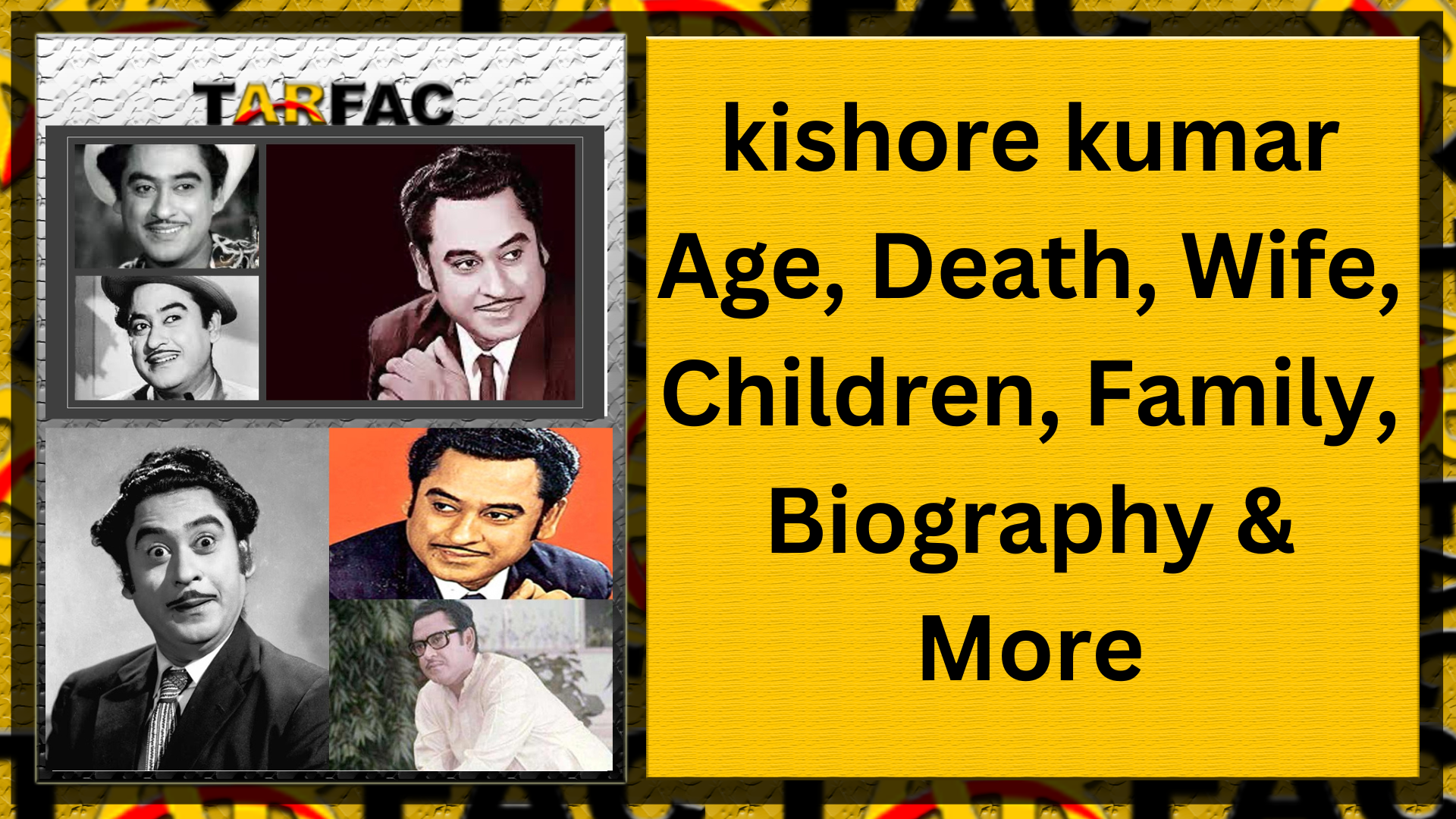Kishore Kumar: The Iconic Singer and Actor
Kishore Kumar, born Abhas Kumar Ganguly on August 4, 1929, was a legendary Indian playback singer, musician, and actor who left an indelible mark on the history of Indian entertainment. Widely considered one of the greatest and most dynamic singers in the country’s music industry, Kishore Kumar was known for his versatility and unique vocal abilities.
Musical Legacy
Kishore Kumar’s musical genius transcended boundaries. Renowned for his yodelling and ability to sing in diverse voices, he was a trailblazer in playback singing. Beyond Hindi, he sang in numerous Indian languages like Bengali, Marathi, Assamese, Gujarati, Kannada, Bhojpuri, Malayalam, Odia, and Urdu. His versatility extended to non-film albums, particularly in Bengali, some of which are celebrated as all-time classics.
According to his brother, the legendary actor Ashok Kumar, Kishore Kumar’s success as a singer stemmed from his ability to connect deeply with the microphone, hitting its most sensitive point with his voice.
Early Life and Career Beginnings
Kishore Kumar hailed from a Bengali Brahmin family in Khandwa, Central Provinces (now in Madhya Pradesh). Born into a family with a rich musical lineage, Kishore Kumar initially pursued acting, making his film debut in “Shikari” (1946), where his brother Ashok Kumar played the lead. However, it was his inclination towards singing that ultimately defined his career trajectory.
His breakthrough came with the song “Marne Ki Duayen Kyon Mangu” in “Ziddi” (1948), under music director Khemchand Prakash. Although initially nonchalant about his film career, Kishore Kumar’s distinctive style began to emerge, influenced by icons like K. L. Saigal and Rabindranath Tagore.
Musical Evolution
Kishore Kumar’s musical evolution was shaped by mentors like music directors S. D. Burman and C. Ramchandra, who recognized his raw talent and nurtured his unique style. His partnership with S. D. Burman yielded numerous hits, showcasing Kumar’s yodelling prowess and emotive depth in songs like “Ek Ladki Bheegi Bhaagi Si” and “Gaata Rahe Mera Dil.”
Notably, Kumar’s ability to improvise and adapt was showcased in the song “Aake Seedhi Lagi Dil Pe” from “Half Ticket,” where he ingeniously sang both male and female parts in the absence of Lata Mangeshkar.
Acting Career
Alongside his musical exploits, Kishore Kumar enjoyed a prolific acting career. Initially indifferent towards acting, he gained traction in the film industry with successful ventures like “Ladki,” “Char Paise,” and “Baap Re Baap.” His onscreen charisma shone in collaborations with acclaimed directors like Bimal Roy and Hrishikesh Mukherjee.
Kumar’s notable films as an actor include “Chalti Ka Naam Gaadi” (1958), a home production featuring his brothers Ashok and Anoop Kumar, and “Padosan” (1968), where he played a musician. Despite his initial reservations, Kishore Kumar’s acting prowess complemented his musical genius, marking him as a versatile entertainer.
Musical Achievements and Later Years
Kishore Kumar’s musical journey was marked by accolades, including eight Filmfare Awards for Best Male Playback Singer. His collaboration with music directors like R. D. Burman produced iconic tracks like “Mere Sapnon Ki Rani” from “Aradhana” (1969), solidifying his status as a playback maestro.
In later years, Kumar’s influence extended to the emerging talents of the ’80s, evidenced by his collaborations with actors like Anil Kapoor. Despite his multifaceted contributions, Kishore Kumar’s life was also punctuated by personal challenges, including multiple marriages and a turbulent relationship with actress Madhubala.
Legacy and Impact
Kishore Kumar’s enduring legacy continues to resonate in Indian music and cinema. His ability to blend classical elements with contemporary styles set new benchmarks in playback singing. From soulful ballads to energetic yodelling numbers, Kumar’s repertoire remains a treasure trove for music enthusiasts.
In his final years, Kishore Kumar’s passion for music persisted, as he continued to inspire future generations of singers. His legacy endures as a testament to his unparalleled talent and lasting impact on Indian entertainment. Kishore Kumar’s voice remains etched in the hearts of millions, immortalizing him as a true icon of Indian cinema and music.
More story in Hindi to read:
Moral stories in Hindi for class




